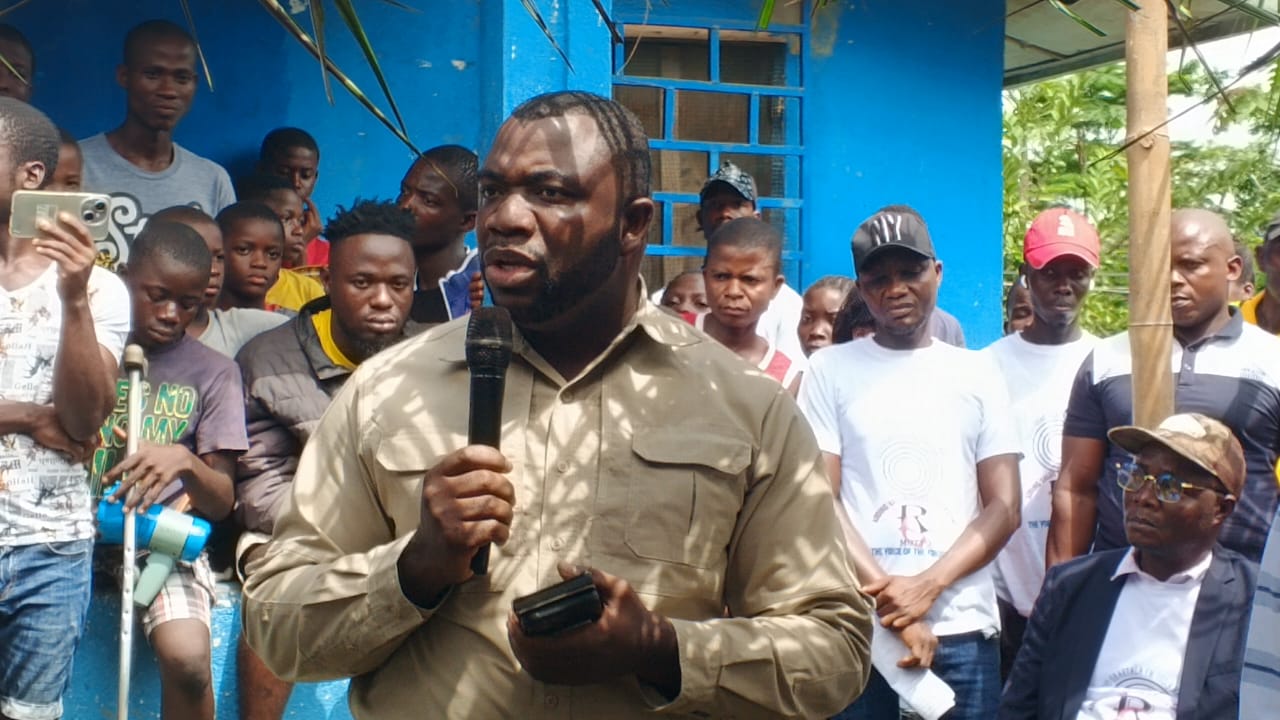The Liberia Political Influence landscape in Liberia’s Bong County has been rocked by revelations from District 2 Representative James Kolleh. In a candid admission, Kolleh revealed that his support for the removal of former House Speaker J. Fonati Koffa was heavily influenced by his longtime political mentor, former lawmaker Edward Karfiah. This disclosure sheds light on the intricate power dynamics and political maneuvering that continue to shape Bong County’s governance. As political actors navigate alliances and rivalries, the broader implications for Liberia’s democratic processes remain significant.
1. Liberia Political Influence: The Role of Mentorship in Bong Politics
Mentorship plays a critical role in shaping political careers in Bong County. James Kolleh’s acknowledgment of Edward Karfiah’s influence highlights how former lawmakers continue to exert power behind the scenes. Karfiah’s longstanding political experience and connections provided strategic guidance that impacted major decisions, including the controversial ousting of Speaker Koffa. Such mentorship dynamics are common in Liberian politics, where alliances often determine political survival and advancement. Understanding these relationships is key to grasping the deeper currents affecting policy and leadership in the region.
2. Liberia Political Influence: Political Intrigue Behind the Ousting of J. Fonati Koffa
The removal of J. Fonati Koffa as House Speaker was not a straightforward political event but rather the result of carefully orchestrated moves by influential figures. Kolleh’s confession reveals a calculated effort to shift power balances within the legislature. The involvement of Edward Karfiah suggests a network of political actors aiming to reshape leadership in Bong County to align with their strategic interests. This incident underscores the complexity of Liberia’s political environment, where formal roles often mask deeper negotiations and power plays. The fallout from this event continues to influence political alignments and governance outcomes.
3. Liberia Political Influence: Implications for Democratic Governance in Liberia
The revelations from Bong County raise important questions about democratic governance in Liberia. When political decisions are heavily influenced by mentorship and behind-the-scenes maneuvers, it challenges the transparency and accountability expected in democratic institutions. While mentorship can provide valuable guidance, it can also perpetuate cycles of power that limit broader participation and representation. Observers worry that such dynamics might undermine public trust in elected officials and hinder efforts to strengthen democratic norms. The Bong case thus serves as a microcosm of larger governance challenges facing Liberia today.
4. Liberia Political Influence: The Strategic Influence of Former Lawmakers
Former lawmakers like Edward Karfiah continue to wield significant influence in Bong County’s political affairs. Their experience and networks enable them to shape current legislative agendas and leadership choices indirectly. Karfiah’s role in the ousting of Speaker Koffa exemplifies how political mentorship extends beyond guidance to active intervention in power structures. This phenomenon reflects a broader pattern in Liberian politics where retired politicians remain key players behind the scenes. Their influence often helps maintain continuity but also raises concerns about the concentration of power among a political elite.
5. Liberia Political Influence: Public Reaction and Political Accountability
The admission by James Kolleh has sparked mixed reactions among Bong County residents. While some see it as a brave move towards transparency, others view it as confirmation of entrenched political manipulation. Calls for greater accountability and reform are growing louder as citizens demand more direct involvement in political decision-making processes.
Civil society organizations are monitoring the situation closely, urging legislators to prioritize constituents’ interests over political patronage. This moment could catalyze renewed efforts to promote openness and responsiveness in Liberia’s governance.
6. Liberia Political Influence in Mentorship: A Double-Edged Sword
Political mentorship in Liberia, as illustrated by Bong County’s recent developments, serves as both a catalyst for leadership growth and a potential source of entrenched power dynamics. Representative James Kolleh’s acknowledgment of Edward Karfiah’s sway in the ousting of Speaker J. Fonati Koffa showcases how mentorship can shape political outcomes significantly. While mentorship provides essential guidance and experience-sharing for emerging politicians, it also risks perpetuating elite control, limiting diversity and fresh voices in governance. This dual nature raises important considerations about how Liberia’s political culture can evolve to balance respect for experience with openness to new leadership.
7. Liberia Political Influence Behind-the-Scenes Power Plays
The intricate power plays behind the scenes in Bong County reveal much about Liberia’s broader political ecosystem. The removal of a high-ranking official like Speaker Koffa underscores the intense strategic maneuvering among political elites. Such actions often occur away from public scrutiny, where alliances, negotiations, and sometimes coercion define outcomes more than democratic debate. Understanding these dynamics is crucial for analysts and citizens alike, as they shape policy directions and governance quality. Transparency initiatives and civic education can help demystify these processes and encourage more inclusive participation.
8. The Role of Media and Public Discourse in Political Accountability-Liberia Political Influence
Media outlets and public discourse play a vital role in holding political actors accountable in Liberia. Coverage by platforms such as allafrica.com and local press ensures that revelations like those from Bong County’s lawmaker reach a wider audience. This dissemination fuels public debate, pressures officials to justify their decisions, and supports democratic transparency. For more on political dynamics in Africa, see our recent political analysis articles. However, challenges remain, including media freedom constraints and misinformation risks. Strengthening journalistic integrity and public engagement remains key to leveraging media as a tool for accountability and democratic resilience.
9. Liberia Political Influence and Regional Politics: Lessons and Parallels
Liberia’s political mentorship and power dynamics echo similar patterns seen across West Africa, where former lawmakers and influential figures continue shaping political trajectories. Countries like Sierra Leone and Ghana have witnessed comparable mentorship influences, which can both stabilize governance and inhibit reform. Sharing lessons and best practices regionally can aid Liberia in navigating these challenges. Collaborative efforts among civil society, governments, and regional bodies such as ECOWAS may promote governance models that balance experience with democratic renewal. This regional perspective enriches the understanding of Bong County’s political shifts as part of a broader West African context.
10. Liberia Political Influence: Prospects for Democratic Reform and Youth Engagement
Looking ahead, Liberia faces critical opportunities to strengthen its democracy by addressing entrenched political influences. Encouraging youth participation, promoting transparent leadership selection, and reforming mentorship practices could help diversify political representation. Civil society initiatives focused on voter education and empowerment are gaining momentum, aiming to reduce patronage-based politics.
By fostering a political culture that values inclusivity and accountability, Liberia can build on recent disclosures to pave the way for a more vibrant democratic future.
Liberia Political Influence: Shaping Future Leadership
In Liberia, political influence continues to shape the future of leadership across counties like Bong. The mentorship and guidance provided by seasoned politicians like Edward Karfiah demonstrate how deeply entrenched political networks remain in the country. This influence extends beyond individual decisions and impacts the cultivation of new leaders who often follow the footsteps of their mentors. While this can ensure continuity and stability, it also raises questions about inclusivity and diversity in political representation.
Aspiring leaders who are outside established networks may find it challenging to break through, potentially limiting fresh ideas and reformist agendas. The balance between honoring political legacy and encouraging innovation is crucial for Liberia’s democratic health. Strengthening institutions to foster merit-based advancement while respecting experienced guidance can help navigate these complexities and ensure that political influence works toward building a more dynamic and representative leadership landscape.
Liberia Political Influence: Impact on Governance and Policy
The exercise of political influence in Liberia has significant implications for governance and policy-making, especially in regions like Bong County. Influential figures who mentor and guide legislators often play a decisive role in shaping policy priorities and legislative agendas. This can be positive when experienced mentors help refine policies and provide strategic insights. However, it can also lead to biases where certain interests are prioritized over broader public needs.
The case of Bong County’s recent political events illustrates how political influence can redirect governance outcomes, sometimes sidelining transparency and accountability. To improve governance, it is essential that political influence is exercised with a focus on public welfare and democratic principles. Encouraging open dialogue, enhancing civic engagement, and instituting checks and balances are ways to ensure that political influence contributes constructively to policy development and implementation in Liberia.
Liberia Political Influence: Challenges and Opportunities Ahead
The political influence landscape in Liberia presents both challenges and opportunities for the country’s democratic development. Challenges include the risk of power concentration among a few influential individuals, which may limit political competition and innovation. Moreover, the behind-the-scenes nature of political maneuvering can erode public trust and create skepticism about the fairness of political processes. Nonetheless, these challenges also present opportunities for reform.
Increased awareness of the role of political influence can drive demands for greater transparency and accountability. Youth engagement and civil society activism are emerging as powerful forces that can counterbalance entrenched influence and promote more inclusive political participation. Harnessing these opportunities requires commitment from all stakeholders to build institutions that promote fair political competition and ensure that influence serves the public interest rather than narrow political agendas.
Conclusion-Liberia Political Influence : Navigating Influence for a Stronger Liberia
The revelations by Bong County lawmaker James Kolleh offer a candid look into the complex interplay of mentorship, influence, and power in Liberian politics. While these dynamics present challenges to democratic ideals, they also highlight areas for growth and reform. By promoting transparency, supporting youth engagement, and learning from regional experiences, Liberia can harness its political realities toward building a more accountable and inclusive governance system. As citizens and leaders reflect on these insights, the path forward will demand courage, dialogue, and commitment to democratic progress.
Source: allafrica.com (Liberian Investigator)




